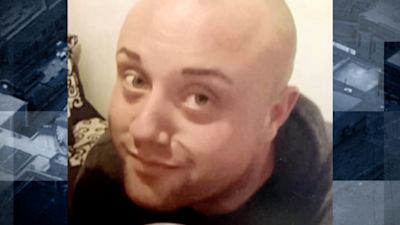Manchester Arena Inquiry: John Atkinson's 'survival might have been possible'

Video report ITV Granada Reports correspondent Amy Welch.
The paramedic in command on the night of the Manchester Arena bombing has apologised if "any decision" he made "impacted" on the survivability of John Atkinson.
It comes as the public inquiry was told earlier intervention 'might' have saved the 28 year old.
Mr Atkinson a care worker from Bury was six metres from the bomber and suffered serious leg injuries and heavy bleeding following the blast.
A member of the public applied a tourniquet using his wife's belt to try and stop the bleeding.
The hearing was told John was not seen by any member of North West Ambulance Service (NWAS) for the 47 minutes that he was in the City Room.
Three paramedics from NWAS entered the City Room on the night - two of them just a few minutes before Mr Atkinson was evacuated.
Mr Atkinson suffered a cardiac arrest waiting for an ambulance, one hour and 16 minutes following the bombing.
The public inquiry heard the 28 year old had been 'stuck' at the top of the stairs having been removed from the City Room on an advertising board.
Daniel Smith the North West Ambulance Service commander on the scene was approached by a police officer to get help for Mr Atkinson, and get him down to the clearing station at Victoria Station.
PC Leon McLaughlin was captured on body cam footage telling Mr Smith: "Excuse me, I know you are busy. We have got someone stuck on the first ground. Two fractures to his legs. We just can't move him."
The inquiry has heard that Mr Smith replied to leave the casualty where he was and "blanket him up".
Mr Smith told the inquiry he could not recall any interaction with PC McLaughlin but explained he was "comfortable" at the time with the system that had been set up to move patients out of the City Room.
Mr Smith said: "I think all the paramedics and all the emergency responders who went to that scene wanted to do their very best."
"I am truly sorry if any decision I made impacted on his survivability".
He said policy and protocol prevented him sending non-specialist paramedics into the City Room. He stood by his decision on safety grounds.
Reports were read to the inquiry from medical professionals including cardiology expert Dr Paul Rees who concluded:
A panel of 'blast-wave' medical experts appointed by the inquiry concluded he could have potentially survived with early treatment, particularly with the application of tourniquets on both legs.
The evidence is being read by Sophie Cartwright QC, counsel to the inquiry.
It was noted Mr Atkinson also suffered from serious heart disease but it was later ruled that "played no part" in his death.
When he was attended by paramedics one recalled Mr Atkinson looked 'waxy as hell' and his legs 'appeared to be a mess'.
Philip Keogh, a former army reservist paramedic said he knew he was a top priority patient right away.
In a statement to the inquiry, Mr Keogh had said John told him, "don't let me die."
Another paramedic recalled his blood pressure was so low it was not recordable.
Later Dr Michael Daley, performed a 'needle decompression' in the back of an ambulance whilst John was in cardiac arrest, he told the inquiry he was not told Mr Atkinson had suffered a significant bleed.
"What he needed was blood which we didn't have," said Dr Daley.
At hospital, a team of clinicians were waiting for Mr Atkinson but they were unable to save him. Mr Atkinson was pronounced dead at 12.24am on 23 May, the public inquiry was told.
Th evidence will continue on Monday.